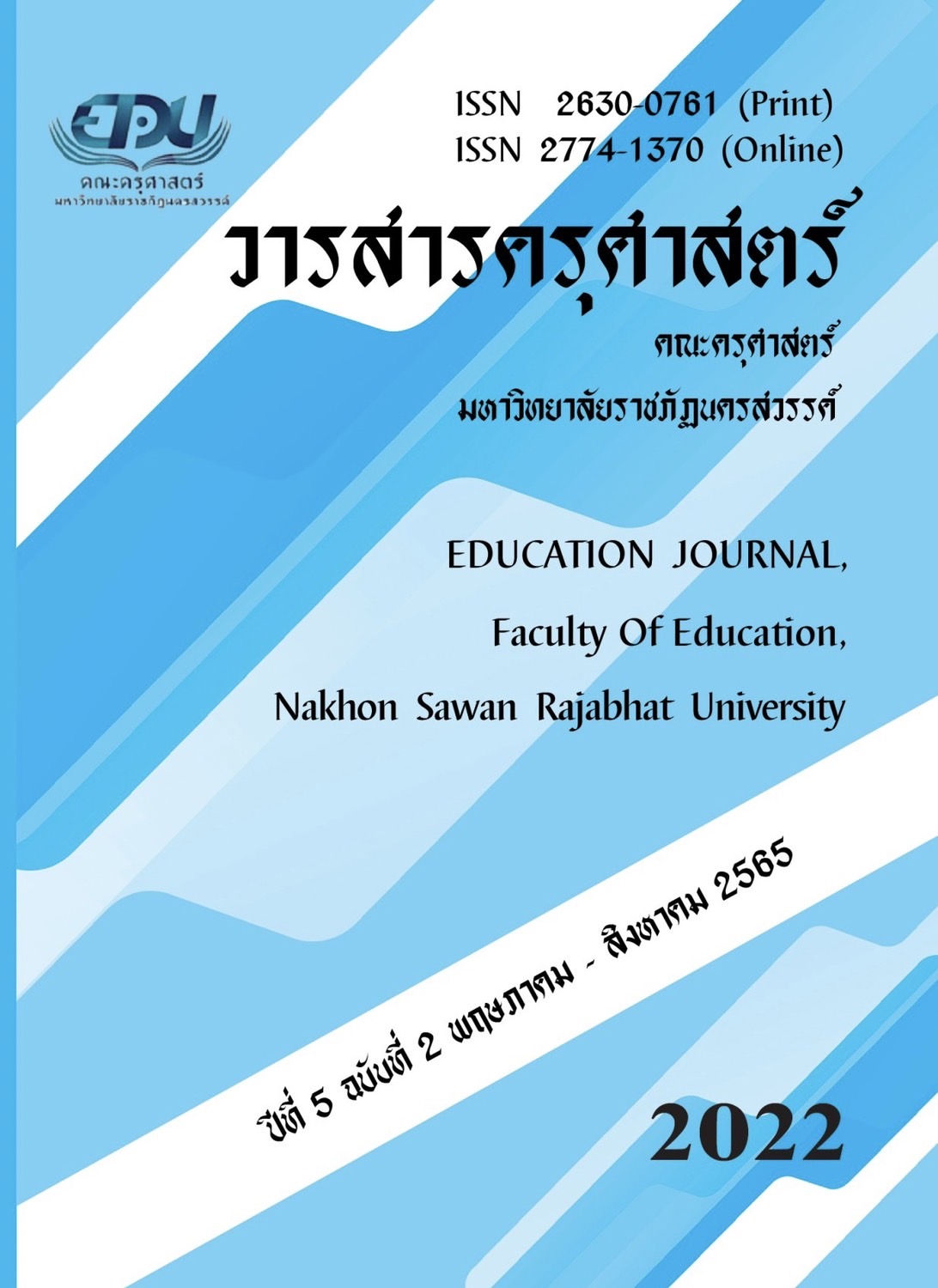Eliminating Discrepancies for Increasing the Validity of Social Science Research
Main Article Content
Abstract
Social science research is the study of human behavior, real natural conditions in society with the aim to solve problems, to create a new theory or to corroborate the original theory in social science research which covers multiple fields such as education, philosophy, political science, sociology, laws, economics, business administration and communication sciences. Every field involves about people whose collecting data is difficult and inaccurate that will be affected the accuracy of research.
There are two aspects of research validity: Internal validity and external validity. Internal validity refers to research that can control over variables or complication variables from the process of research that affects research answers’ discrepancies from reality. This may be discrepancies resulting from data collection, experimentation or data interpretation analysis, on the other hand, external validity refers to the nature of research that could be applied to other groups as well, such as sampling that represents a large population, to minimize internal and external discrepancies for high accuracy research requires carefully designing and planning at every step of the research.
When creating research tools and collecting information from people, it is difficult to create research tools and collect data which lead to high chance of discrepancies. For example, the discrepancy may be caused by the non-collaboration of the sample. Therefore, the researcher has to clarify the plan and have a strategy to work in order to ensure the cooperation of all departments in the research to prevent the discrepancies that will be affected the accuracy and confidence of the research’s result.
Downloads
Article Details

This work is licensed under a Creative Commons Attribution-NonCommercial-NoDerivatives 4.0 International License.
References
กิตติพงษ์ พิพิธกุล. (2561). คุณภาพเครื่องมือแบบสอบถาม: Validity กับ Reliability ในการวิจัยทางรัฐประศาสนศาสตร์. วารสารวิชาการและวิจัยมหาวิทยาลัยภาคตะวันออกเฉียงเหนือ, 8(2), 104 - 110.
เกียรติสุดา ศรีสุข. (2552). ระเบียบวิธีวิจัย. เชียงใหม่: โรงพิมพ์ครองช่าง.
นิรัช สุดสังข์. (2559). ระเบียบวิธีวิจัยทางการออกแบบ. กรุงเทพฯ: สำนักพิมพ์โอเดียนสโตร์.
บุญใจ ศรีสถิตย์นรากูร. (2550). ระเบียบวิธีการวิจัยทางพยาบาลศาสตร์. (พิมพ์ครั้งที่ 4). กรุงเทพฯ: สำนักพิมพ์ยูแอนด์ไออินเตอร์มีเดีย.
ปัญญา ธีระวิทยเลิศ. (2547). การพัฒนาเครื่องมือวิจัยทางสังคมศาสตร์. กรุงเทพฯ: สำนักงานคณะกรรมการวิจัยแห่งชาติ.
________. (2560). การวิจัยทางการศึกษา. กรุงเทพฯ: มหาวิทยาลัยราชภัฏจันทรเกษม.
มีนมาส พรานป่า, รัชนี พลพิบูลย์, และภัสยกร เลาสวัสดิกุล. (2563). ความคลาดเคลื่อนในงานวิจัยทางสังคมศาสตร์ที่เกิดจากผู้เชี่ยวชาญ. วารสารวิทยาลัยนครราชสีมา, 13(3), 295 - 308.
สถาบันวิจัยและพัฒนาแห่งมหาวิทยาลัยเกษตรศาสตร์. (2560). คู่มือการกรอกแบบสอบถาม. สืบค้นเมื่อ 25 เมษายน 2565, จาก https://www3.rdi.ku.ac.th/wp-contents/uploads/2018/09สาขาวิจัย-OECD.pdf
สำนักงานการวิจัยแห่งชาติ. (2564). คู่มือนักวิจัยในการขอรับทุนวิจัยและนวัตกรรมจากสำนักงานการวิจัยแห่งชาติ (วช.) กระทรวงการอุดมศึกษา วิทยาศาสตร์ วิจัยและนวัตกรรม. (พิมพ์ครั้งที่ 1). กรุงเทพฯ: กองทุนส่งเสริมวิทยาศาสตร์ วิจัยและนวัตกรรม.
อนิวัช แก้วจำนงค์. (2564). แนวคิดเกี่ยวกับการวัด ปัจจัยที่มีผลต่อความคลาดเคลื่อนจากการวัดการตรวจสอบคุณภาพความตรงและความเที่ยงของเครื่องมือวิจัย (เน้นเครื่องมือวัดเชิงปริมาณ). เอกสารประกอบการบรรยายโครงการฝึกอบรมนักวิจัยรุ่นใหม่ “ลูกไก่” มหาวิทยาลัยอุบลราชธานีรุ่นที่ 8, วันที่ 6-10 กันยายน 2564, มหาวิทยาลัยอุบลราชธานี.
Kerlinger, Fred. N., & Lee, H. B. (2000). Foundations of Behavioral Research. (4th ed.). Singapore: Thomson Learning.


